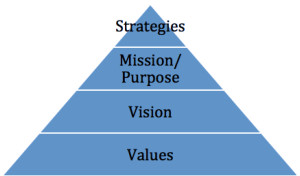The Passage In-Between
Below is the letter I sent to my graduating seniors at Baruch College’s Zicklin School of Business in New York City, where I’ve taught Family Business Management and Entrepreneurship for the past 10 years.
As I was acknowledging the students’ accomplishments and, upon graduation, their facing a transition into the unknown, I thought of parallels to family businesses I have known. They too managed transitions. Both the graduating students and the family businesses have come to that place where one door closes and another has yet to open. For the family business, this is where the parent, as the incumbent generation, and the adult child, as the rising generation, reflect on past accomplishments and encounter a sense of an uncertain future.
For family businesses, these are times of opposing life stages, where the parent’s tolerance for risk decreases and the child’s desire to bring change increases. Here the parent is transitioning from ‘doing’ the work of the business to being a ‘memory holder.’ At the same time, the child is transitioning from a supportive role to one of leadership — to being held accountable for the future of the business, the family, and the positive continuation of their legacy. As the transition occurs, there opens an ‘in-between passage’ wherein the role changes are not yet recognized or feel correct. This is a ‘liminal space’—a place of both uncertainty and opportunity.
Here is my letter to my graduating class:
Congratulations to those of you graduating.
I expect when you first started college, you could not envision how your graduation would be. You may have had, upon starting college, a feeling of entering unknown territory – a liminal space – an in-between place where one door has closed and before another opens.
Then over time and after hard work, you settled in, moving forward and upward in seniority among college students. Suddenly the time has come, and another liminal space appears.
2020 continues to be a year unlike any other any of us have experienced prior. Anticipations and expectations evaporated in front of our eyes, replaced with ambiguities, uncertainties, and even, perhaps, chaos. And the year is not over yet.
As entrepreneurs, we need to be able to accept the ambiguity within liminal space. It is the space where normal and familiar activities cease. It is the threshold if not substance upon which creativity and innovation thrive.
Trite as it is, the future is yours. And remember; as you embark on your new ‘you,’ you may fail at times. It’s what we do. Remember then the imperative truism of entrepreneurship — that the creative process succeeds for those willing to fail fast and fail often, for creativity is a cyclical and spiral process that can require constant re-invention. If there is any lesson to take away, this may be it.

